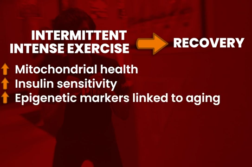ORLANDO, Fla. (Ivanhoe Newswire)— Lung cancer is the leading cause of cancer deaths for both men and women. The five-year survival rate for advanced non-small cell lung cancer, that has spread to distant areas of the body, is seven percent. However, doctors believe the key to increasing survival rates for advanced lung cancer patients is in the genes. Genetic testing
More than 235,000 people will hear the words you have lung cancer this year. But there are more treatment options today to increase their odds of survival.
“Twenty years ago, lung cancer was a one-size-fits-all, now it’s a very heterogeneous population of patients based on various DNA alterations,” Mark A. Socinski, MD, an executive medical director at AdventHealth Cancer, told Ivanhoe.
And one of those DNA alterations is the MET exon 14 skip mutation in non-small cell lung cancer. Dr. Socinski calls the mutation an oncogenic driver.
Dr. Socinski elaborated, “Meaning that it causes the cancer to grow. Knowing this, there are specific targeted therapies that can inhibit the growth of cancer.”
Doctor Socinski uses genomic testing to search for the met-exon-14 skip mutation and other mutations in his patients. He believes genetic testing may allow doctors to pinpoint an exact target to attack the cancer.
“That process of coupling a target with a targeted therapy makes it much more effective and much more rapidly approved by the FDA,” Mark A. Socinski, MD, noted.
Allowing doctors to get the right treatment, to the right patient, at the right time.
Since the discovery of the MET exon 14 skip mutation, two targeted therapies have been rapidly approved by the FDA. Dr. Socinski says these therapies have been more effective than chemotherapy and immunotherapy in treating advanced non-small cell lung cancer.
Contributors to this news report include: Milvionne Chery, Producer; Roque Correa, Videographer; Roque Correa, Editor.
To receive a free weekly e-mail on medical breakthroughs from Ivanhoe, sign up at: http://www.ivanhoe.com/ftk
Sources:
https://www.cancer.org/cancer/lun-cancer/about/key-statistics.html
https://www.cancer.org/cancer/lung-cancer/detection-diagnosis-staging/survival-rates.html
MEDICAL BREAKTHROUGHS
RESEARCH SUMMARY
TOPIC: GENETIC TESTING SAVES ADVANCED LUNG CANCER PATIENTS
REPORT: MB #4966
BACKGROUND: Lung cancer is categorized by stages based on how widespread it is in the body, and usually the higher the stage means the more severe the cancer. Stage 4 lung cancer is the most advanced form of the disease and is metastatic, or the cancer has spread where it originated into other parts of the body. Lung cancer (both small cell and non-small cell) is the second most common cancer in both men and women. The American Cancer Society’s current estimates for lung cancer in the United States are about 235,760 new cases (119,100 in men and 116,660 in women), and about 131,880 deaths from lung cancer (69,410 in men and 62,470 in women). It mainly occurs in older people aged 65 or older; a very small number of people diagnosed are younger than 45. The average age of people when diagnosed is about 70.
(Source: https://www.cancercenter.com/cancer-types/lung-cancer/stages/stage-iv-lung-cancer and https://www.cancer.org/cancer/lung-cancer/about/key-statistics.html)
GENETIC TESTING FOR LUNG CANCER: Changes in lung cancer cells occur due to harmful genetic mutations in the DNA of the cell. When a mutated cell multiplies, the newly formed cells carry the same dangerous mutations. These can occur when a cell is exposed to toxins or when the body makes an error during cell division. This is where genetic testing is playing a larger role in lung cancer care. Tests are allowing to identify specific genetic changes in the tumor cells that may be treatable with targeted therapies. Among the many benefits of targeted therapies is that they can block growth of cancer cells without harming healthy cells. Genetic changes account for about 80-85% of non-small cell lung cancer and in about 10-15% of small lung cell cancers.
(Source: https://www.verywellhealth.com/genetic-testing-for-people-with-lung-cancer-2248945)
FDA APPROVES TARGETED THERAPY: The FDA approved Lumakras as the first treatment for adult patients with non-small cell lung cancer whose tumors have a specific type of genetic mutation called KRAS G12C, and who have received one prior systemic therapy. “KRAS mutations have long been considered resistant to drug therapy, representing a true unmet need for patients with certain types of cancer,” said Richard Pazdur, MD, director of the FDA’s Oncology Center of Excellence and acting director of the Office of Oncologic Diseases in the FDA’s Center for Drug Evaluation and Research. “Today’s approval represents a significant step towards a future where more patients will have a personalized treatment approach.” The Accelerated Approval pathway was used for Lumakras, where the FDA approves drugs for serious conditions where there is unmet medical need and a drug is shown to have certain effects that are reasonably likely to predict a clinical benefit to patients. Further study is required to verify clinical benefits of Lumakras.
FOR MORE INFORMATION ON THIS REPORT, PLEASE CONTACT:
KRISTI POWERS
KRISTI.POWERS@ADVENTHEALTH.COM
If this story or any other Ivanhoe story has impacted your life or prompted you or someone you know to seek or change treatments, please let us know by contacting Marjorie Bekaert Thomas at mthomas@ivanhoe.com




